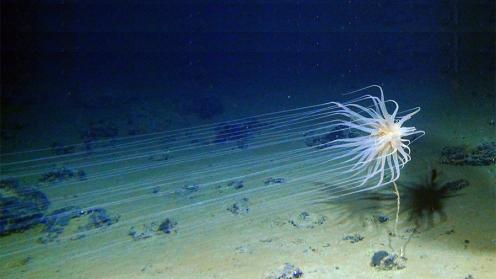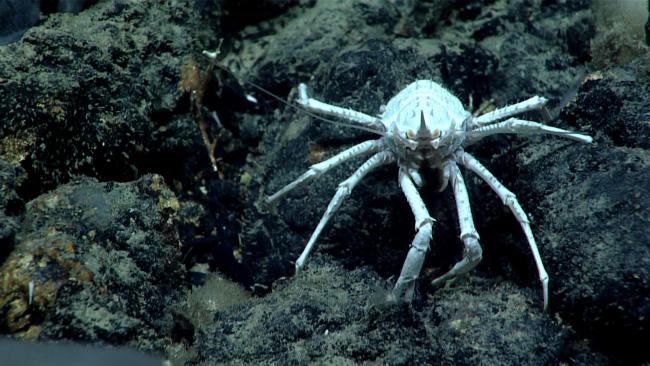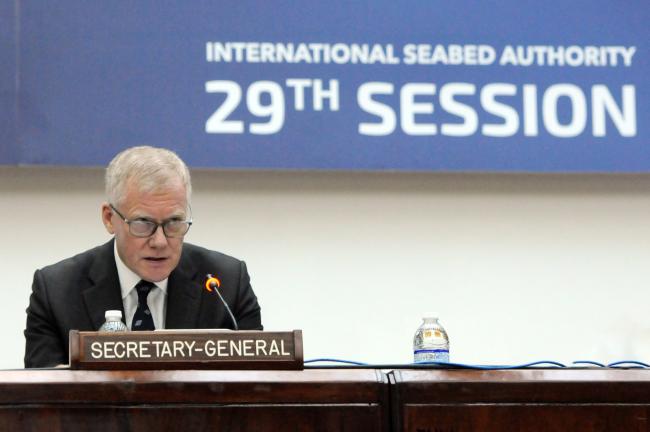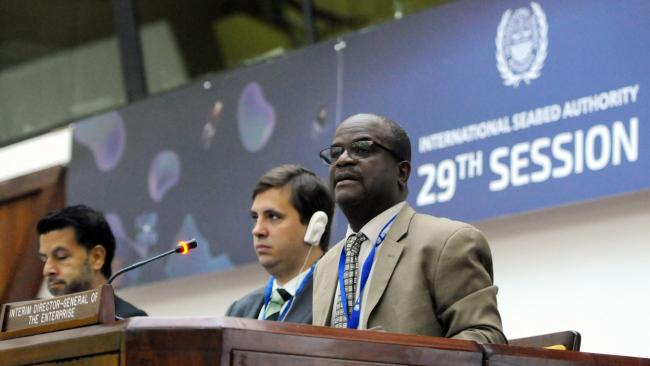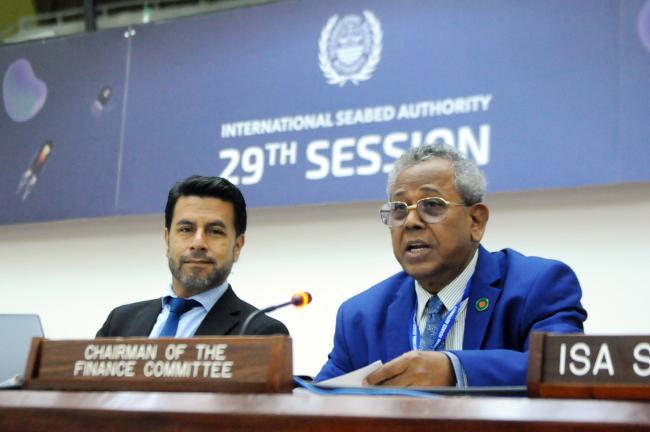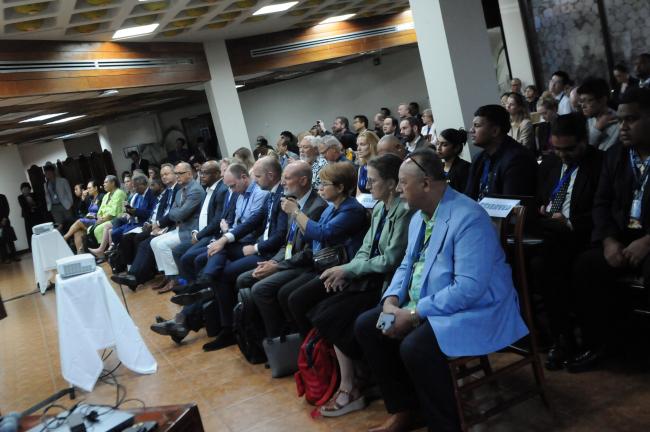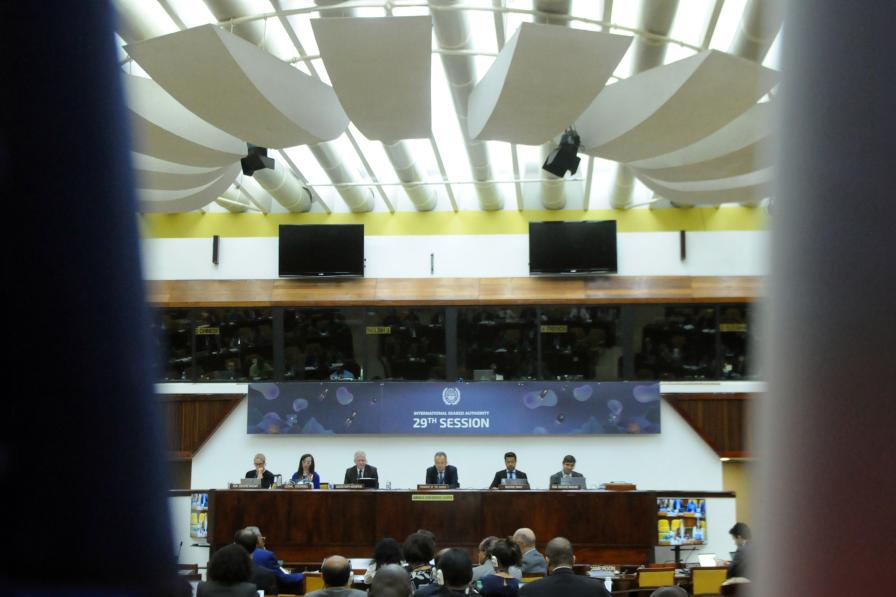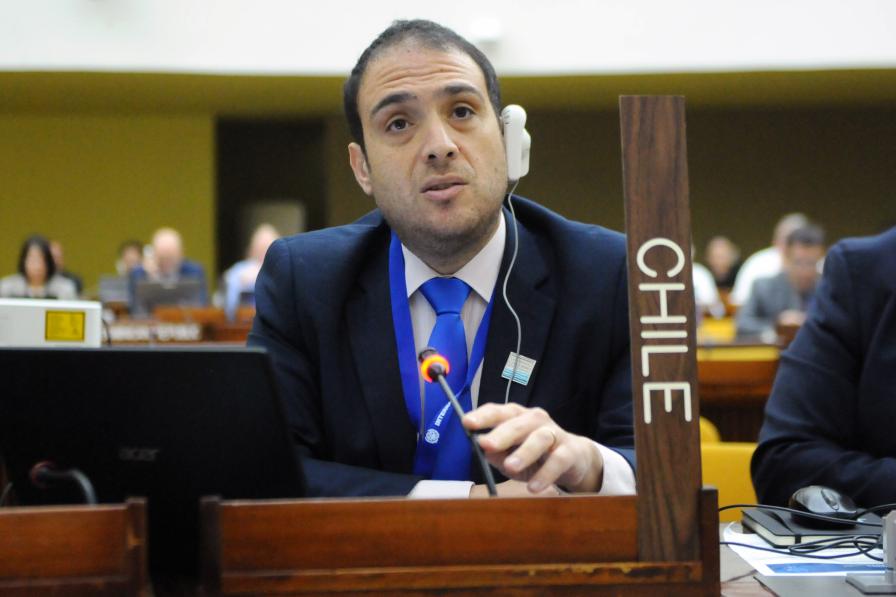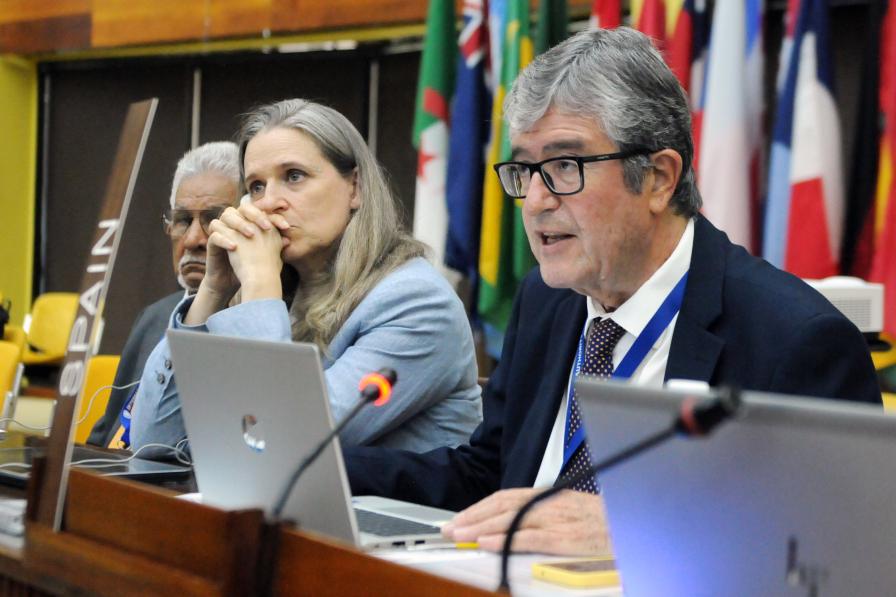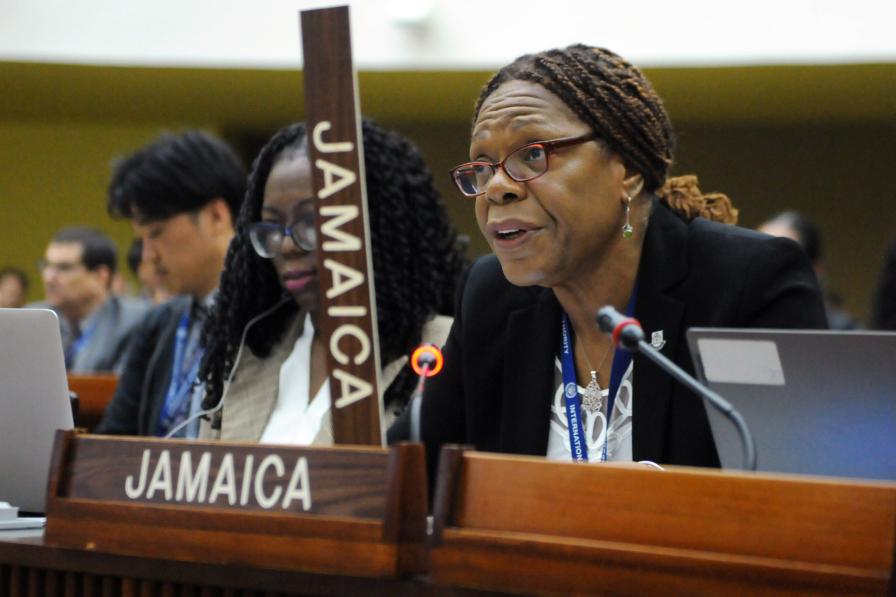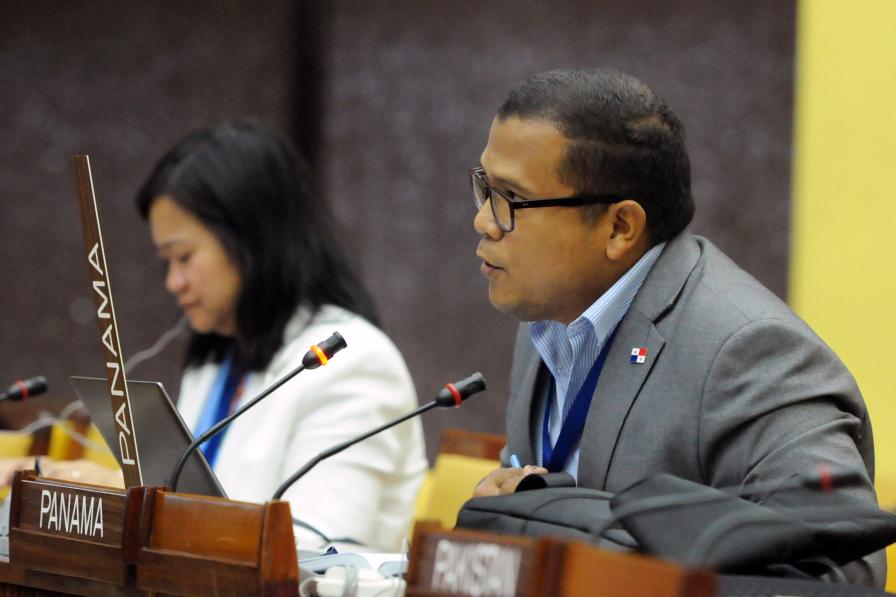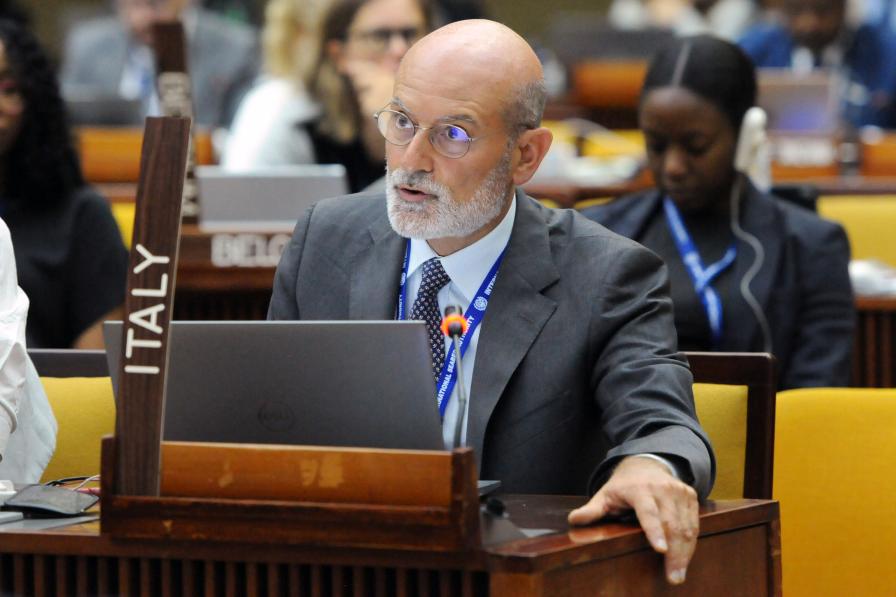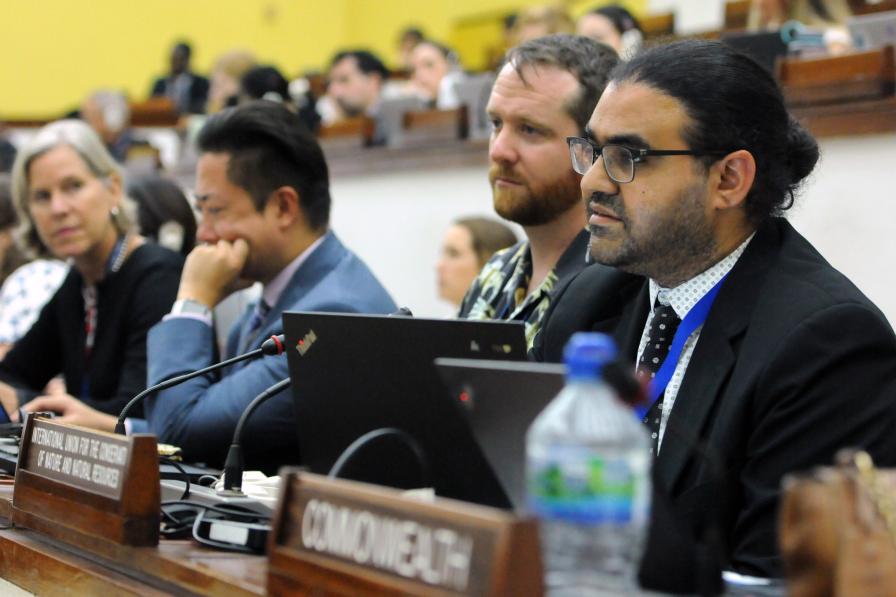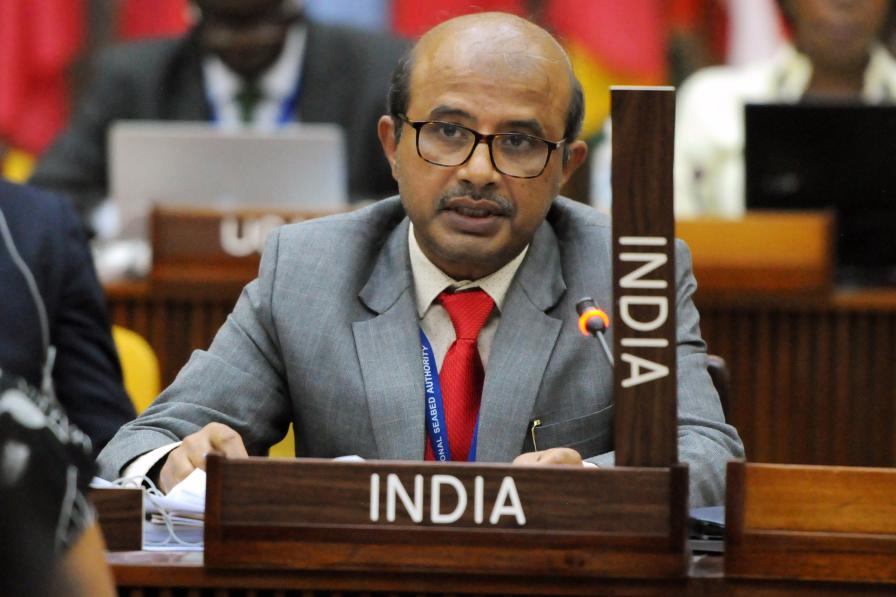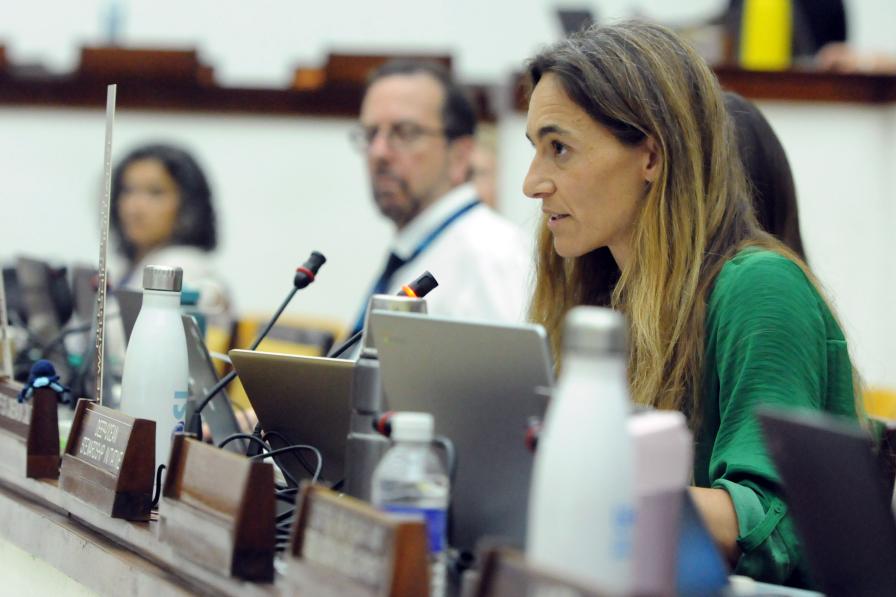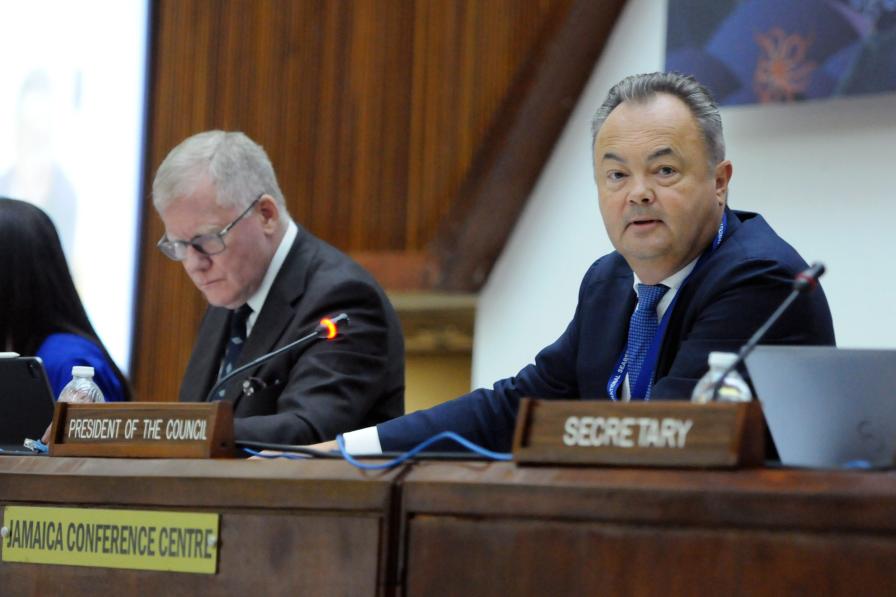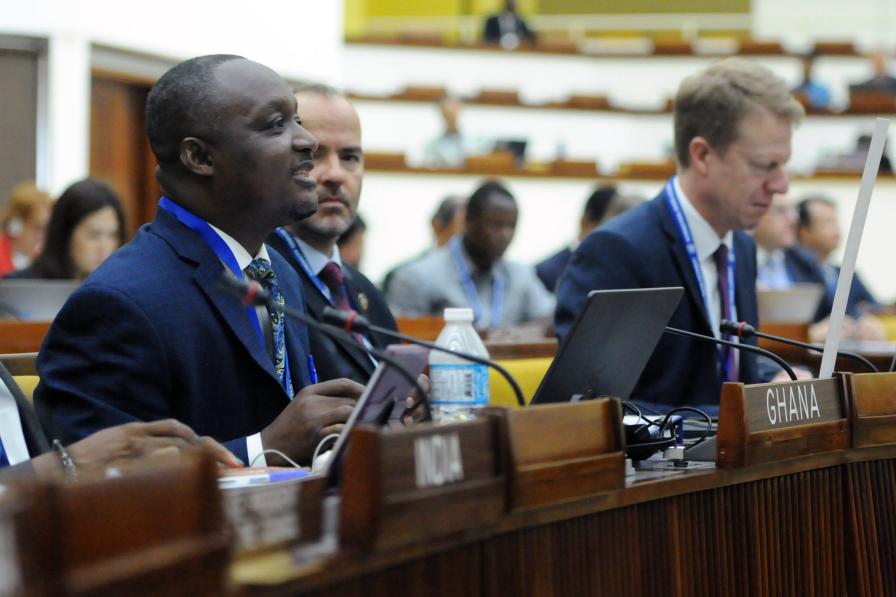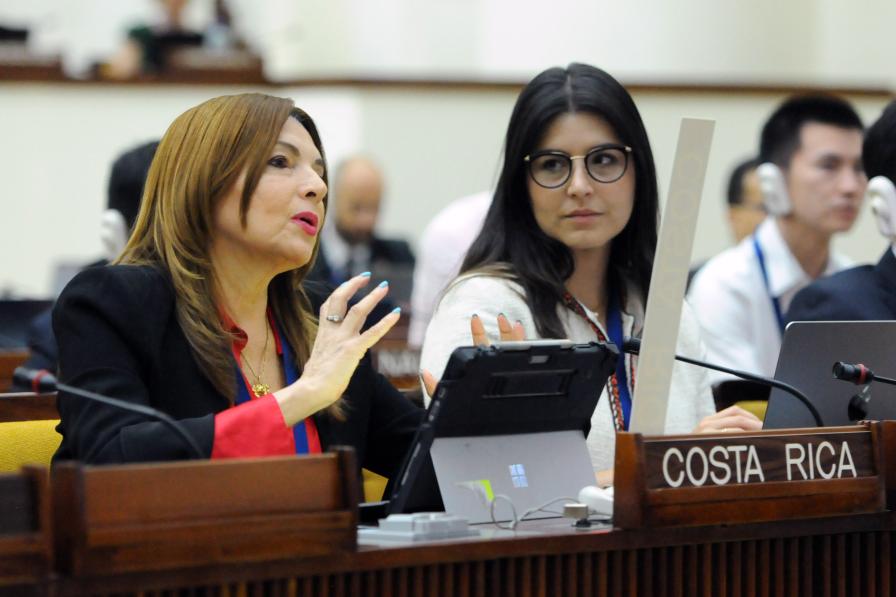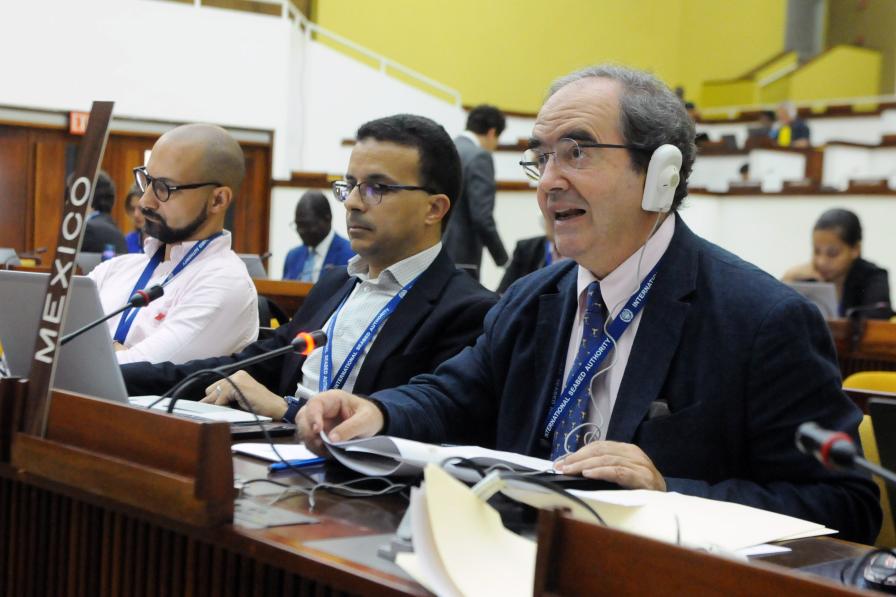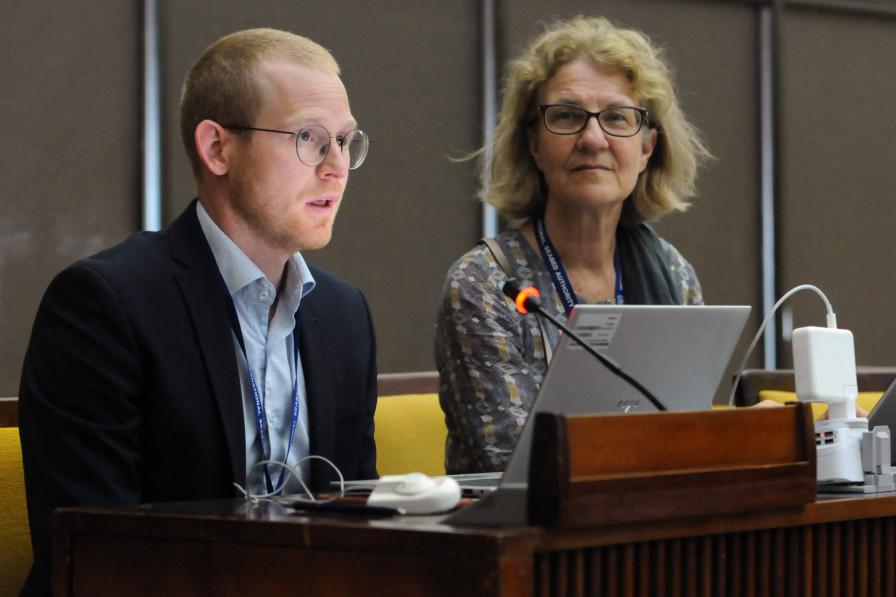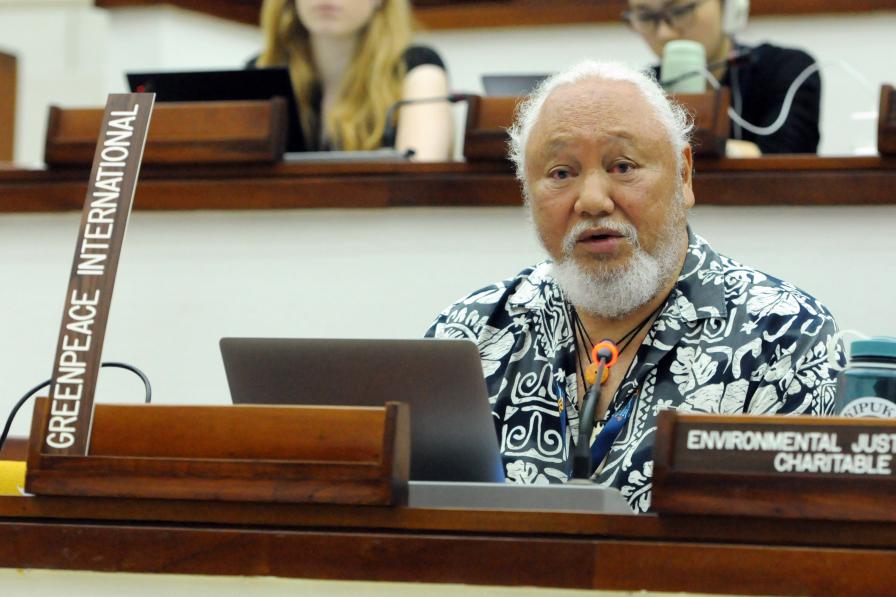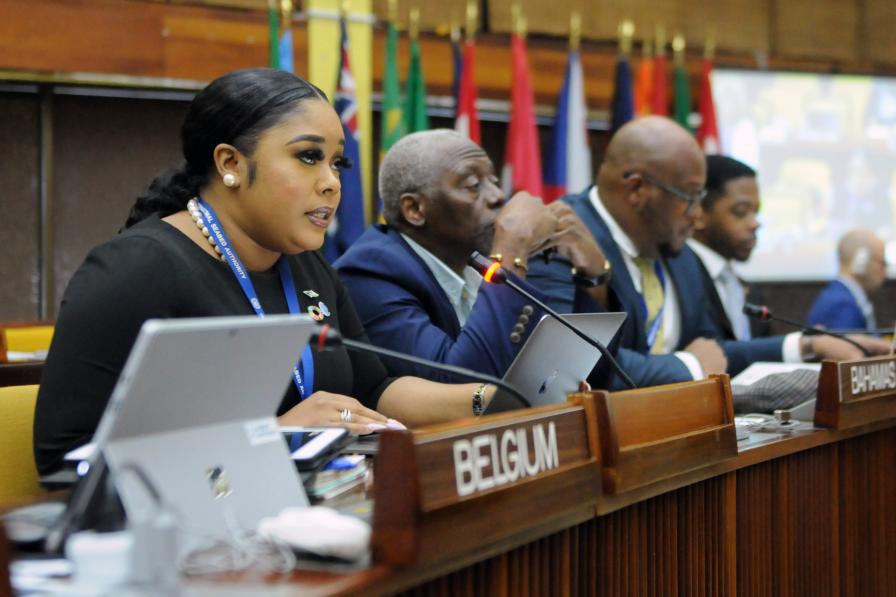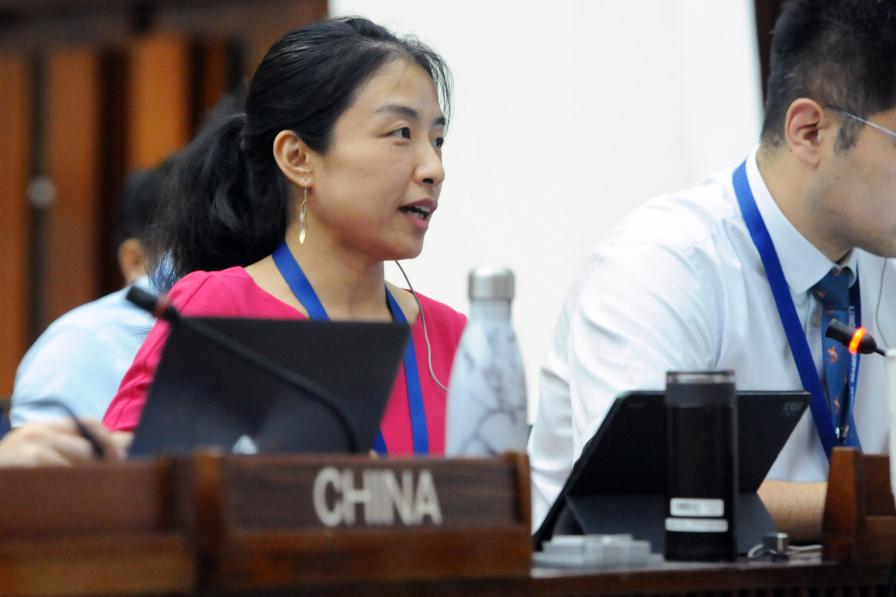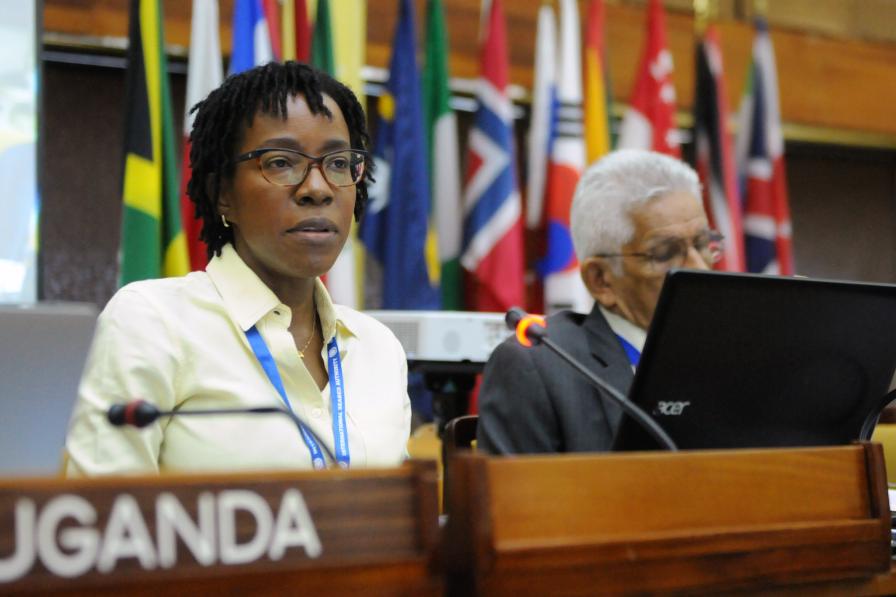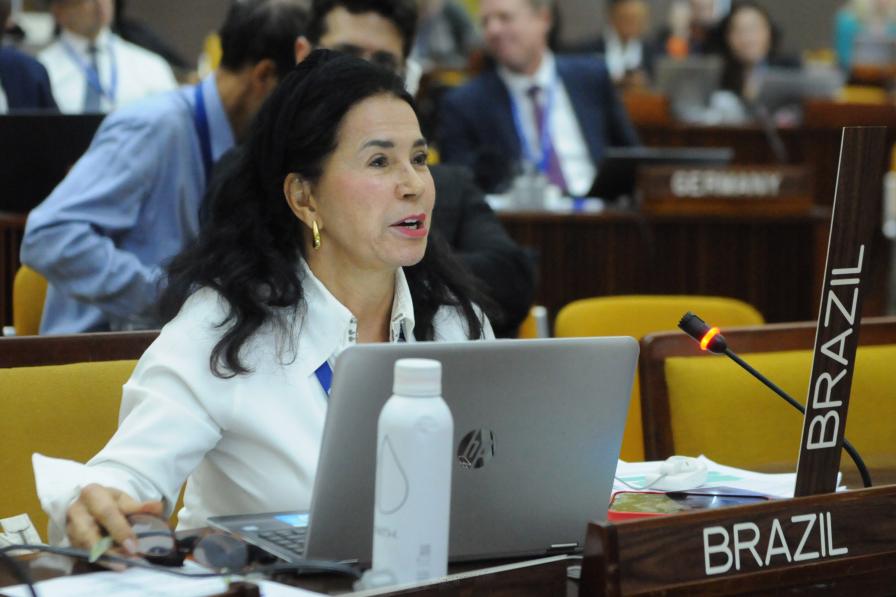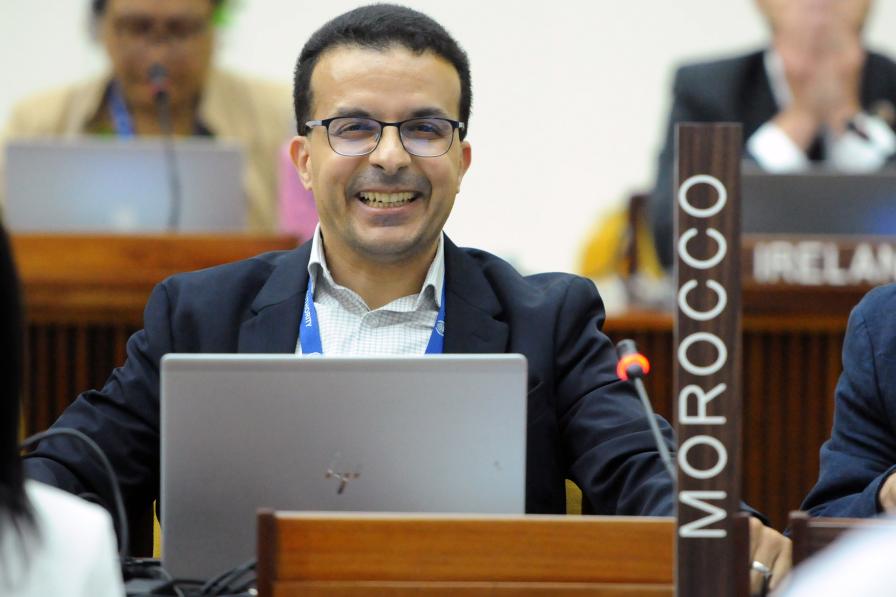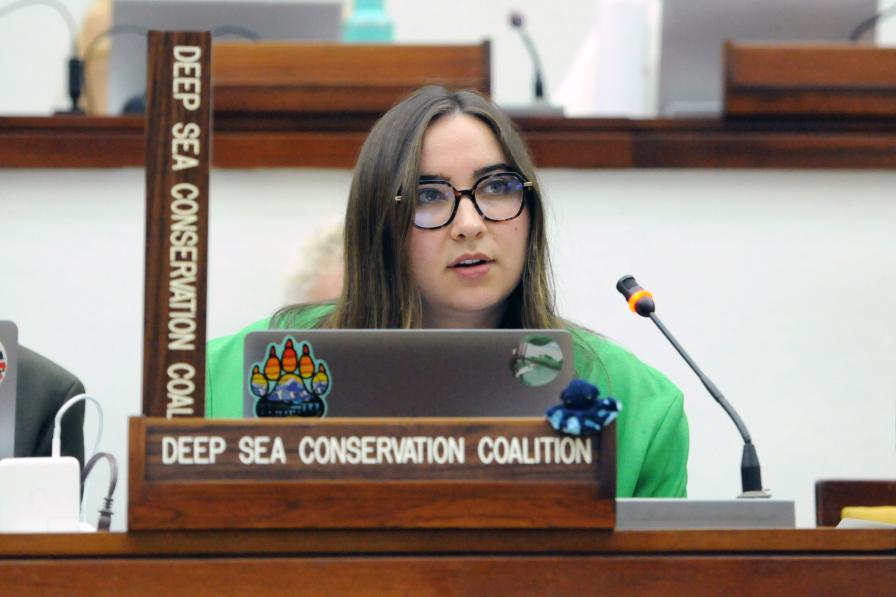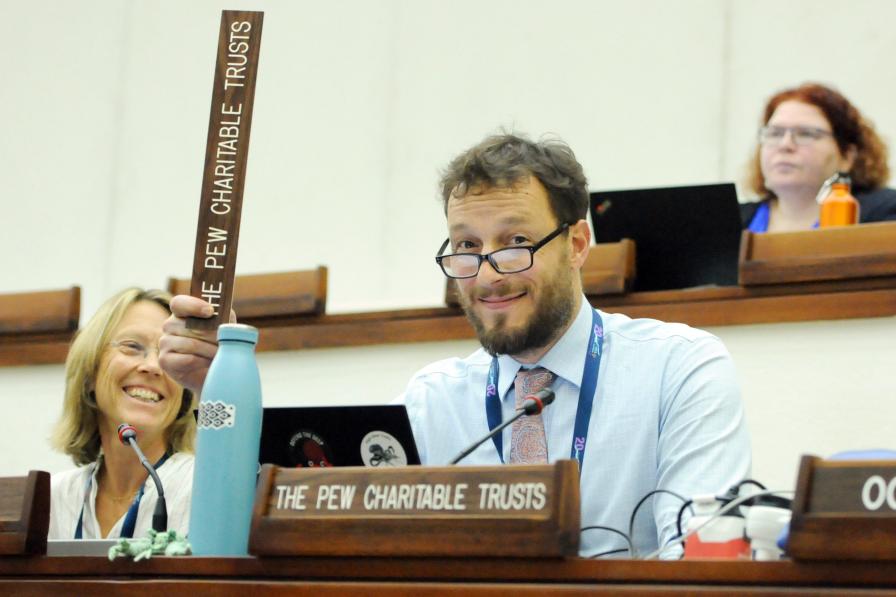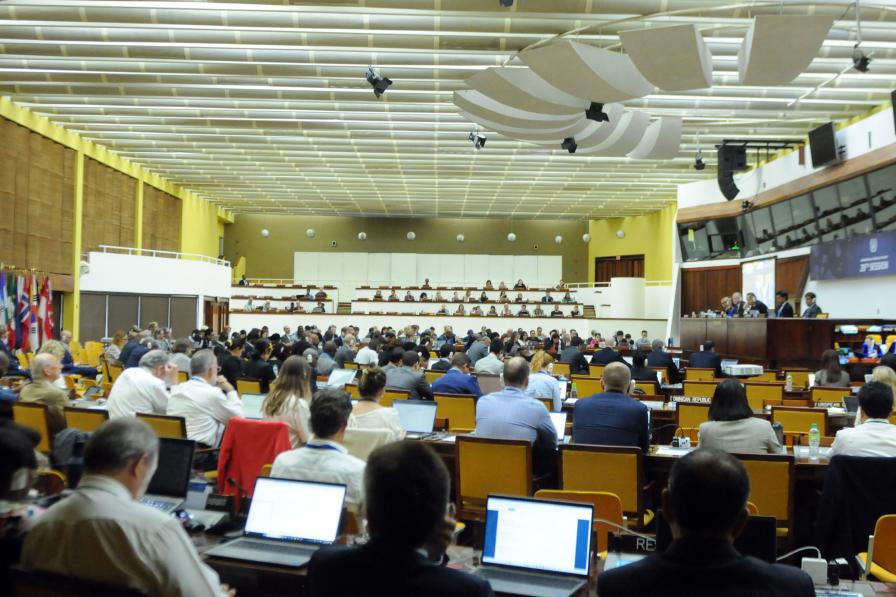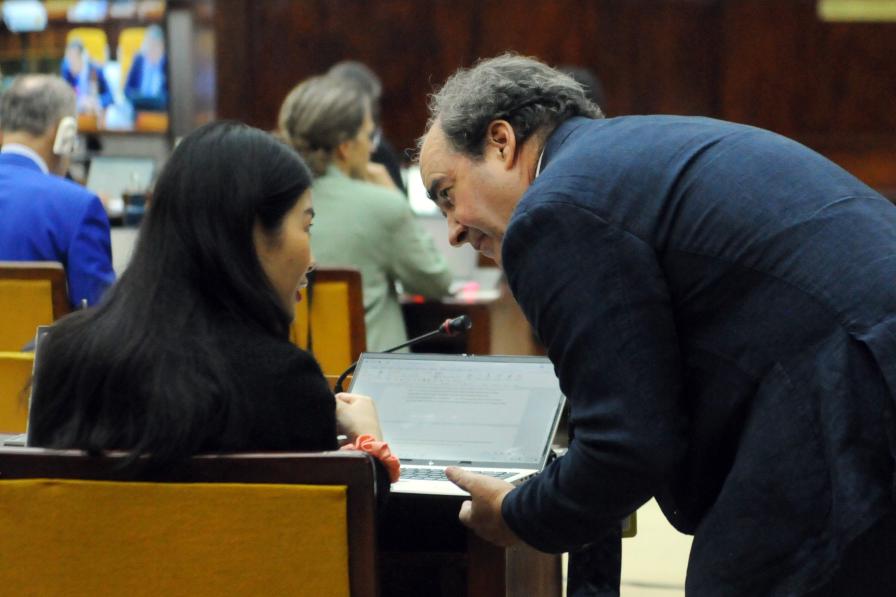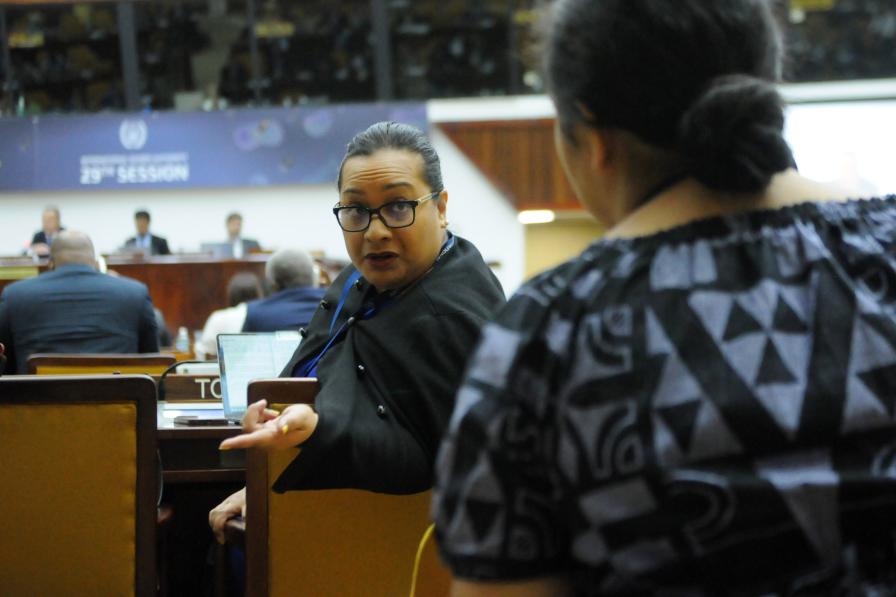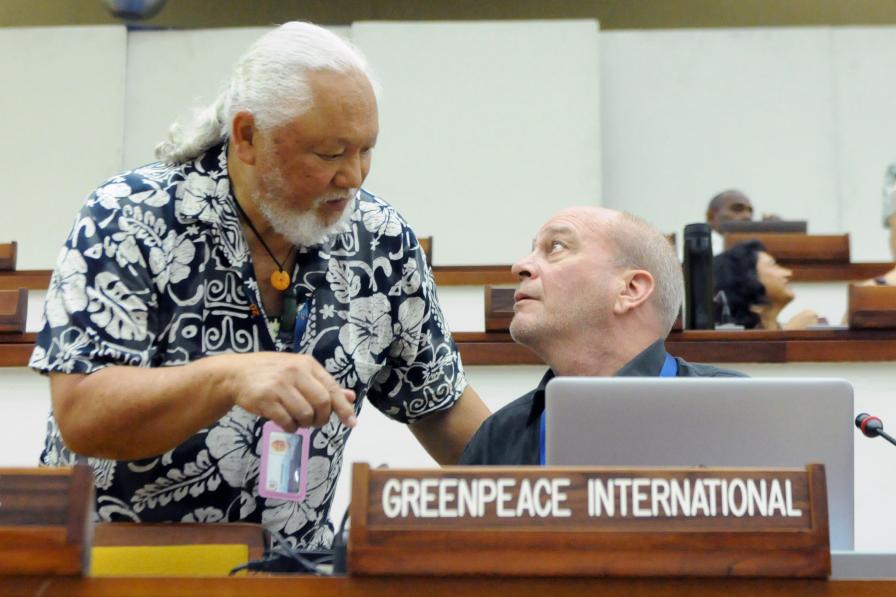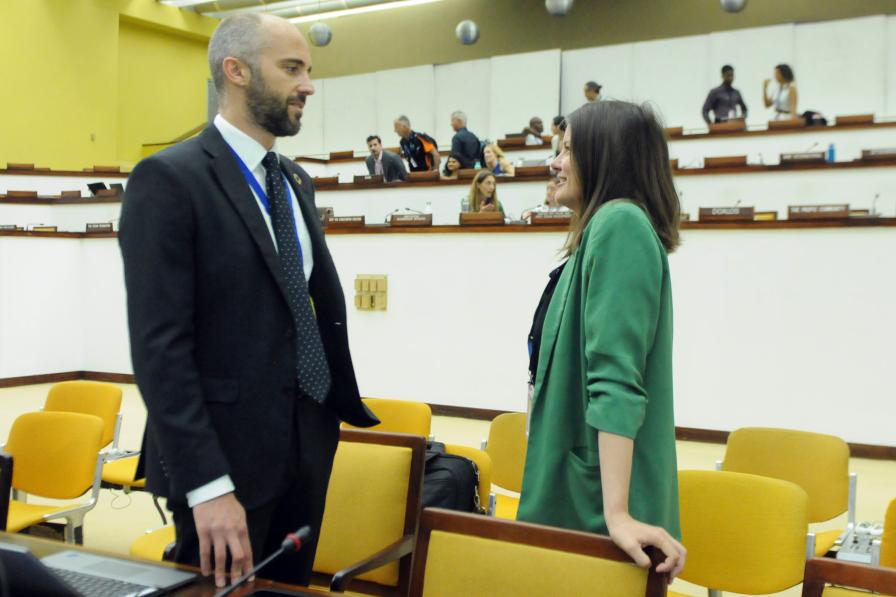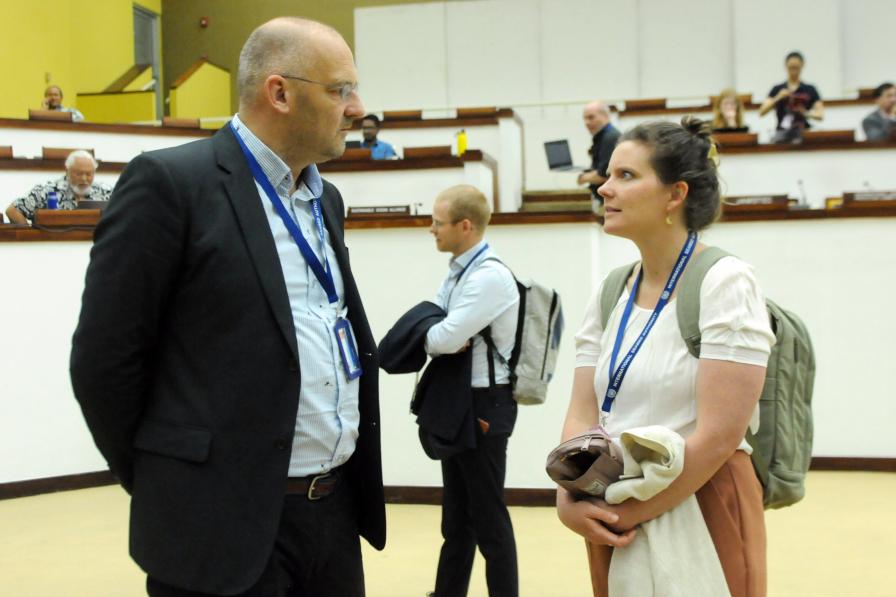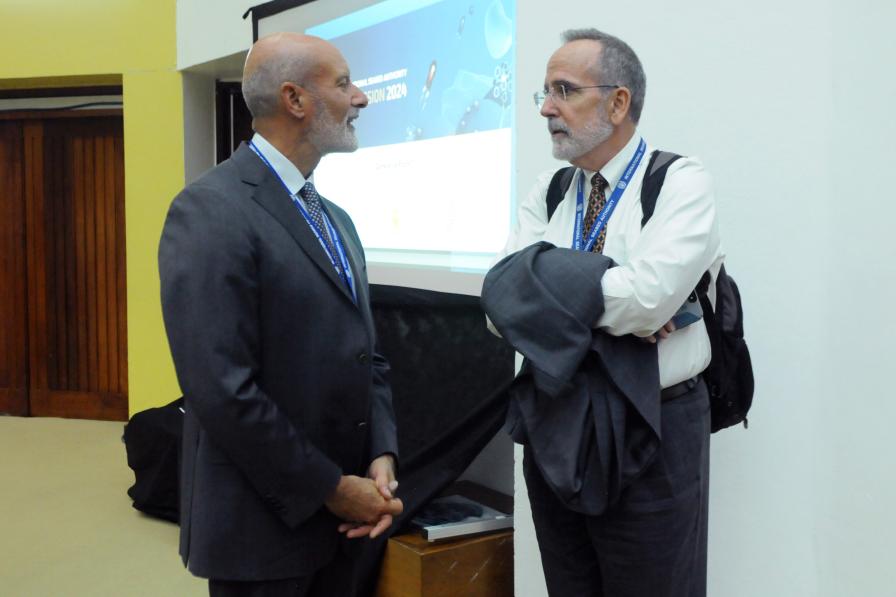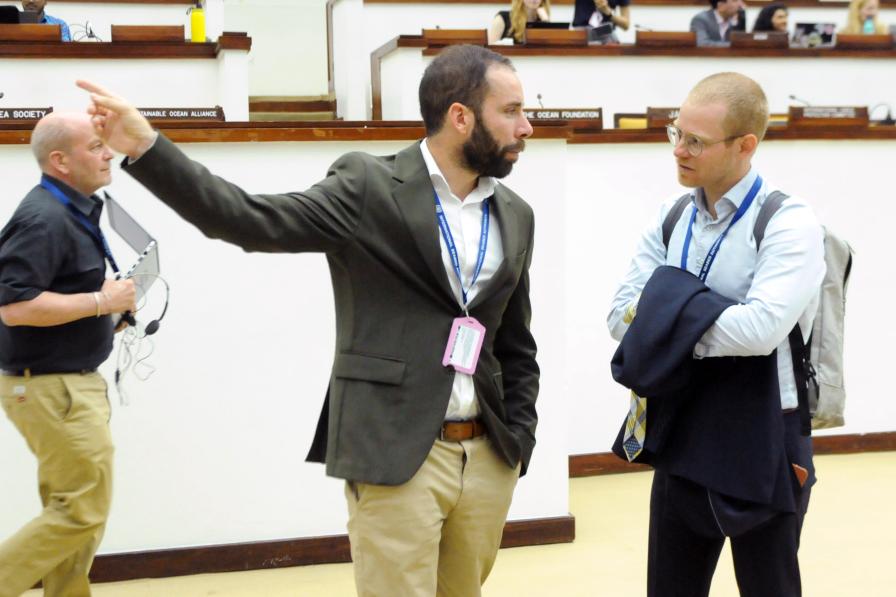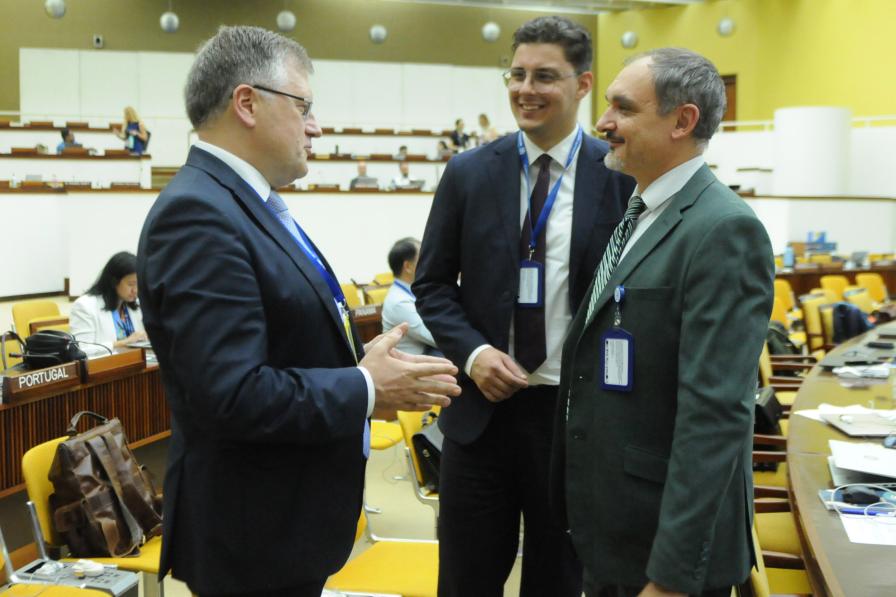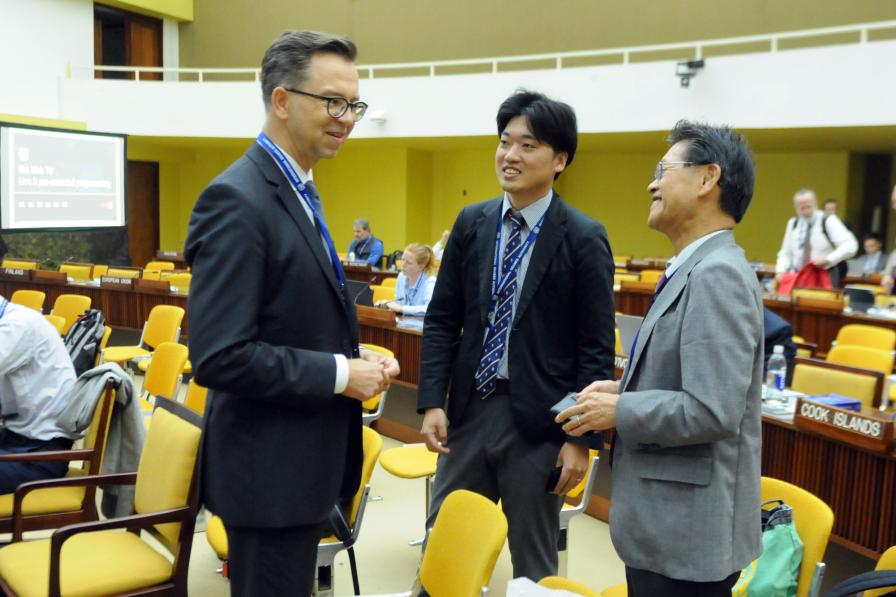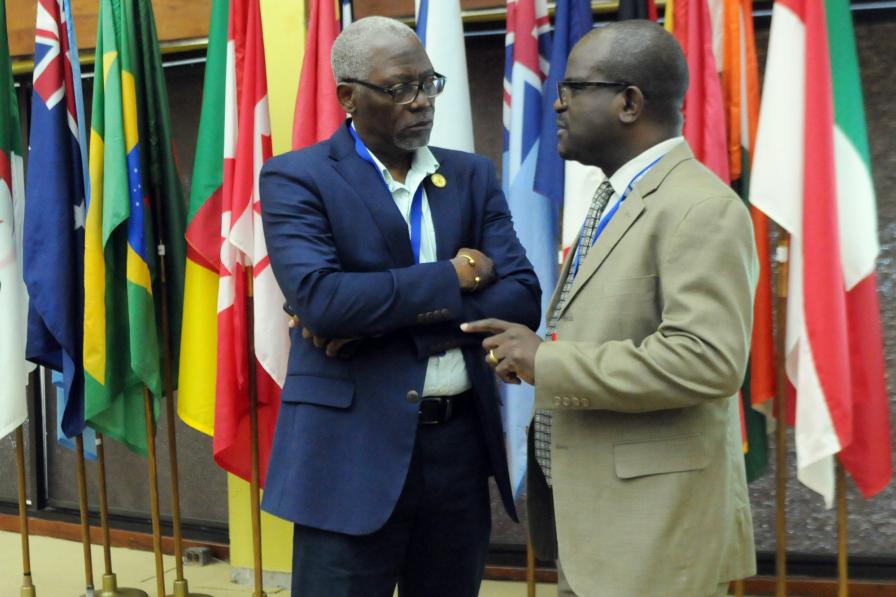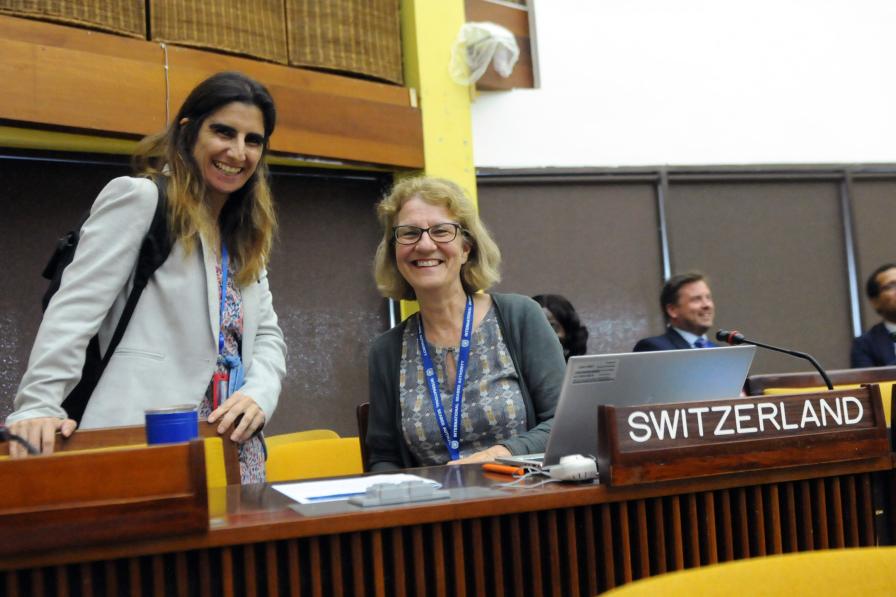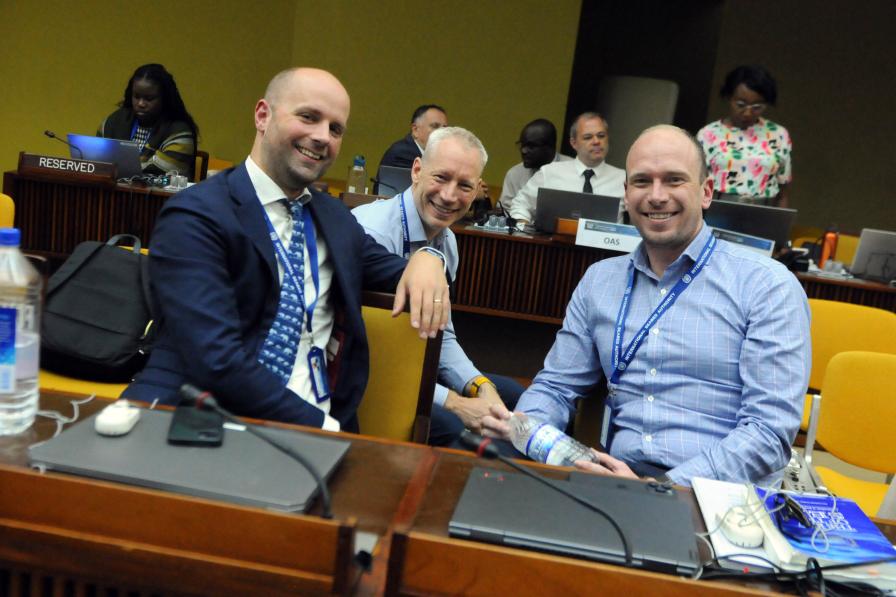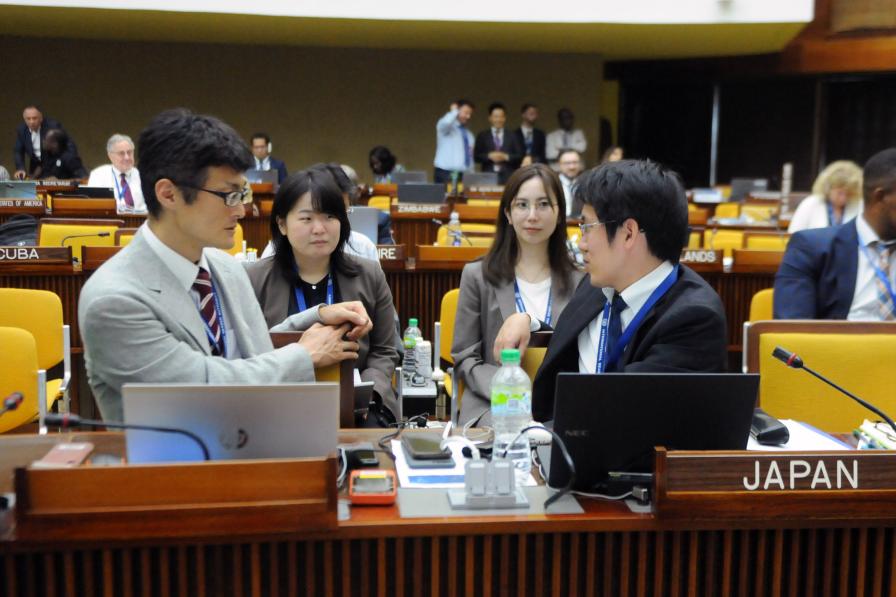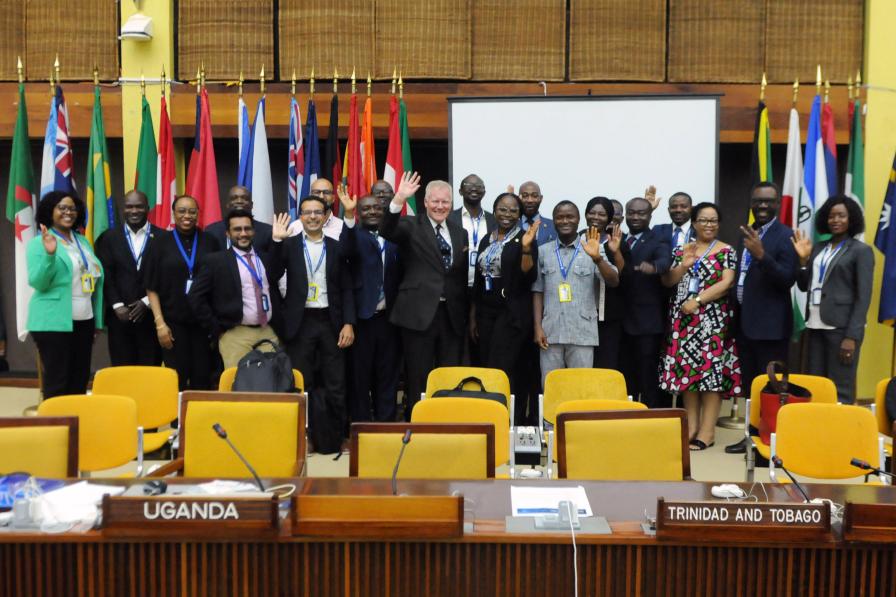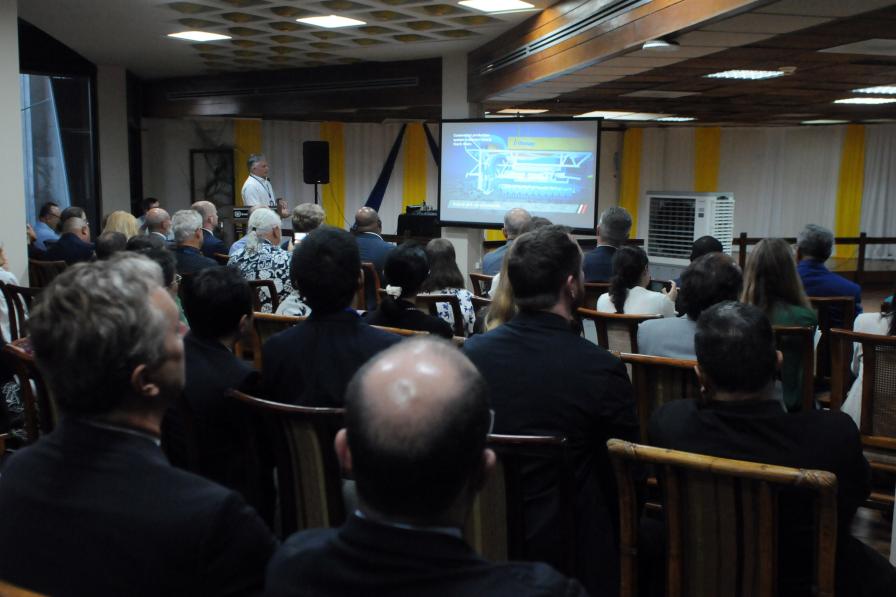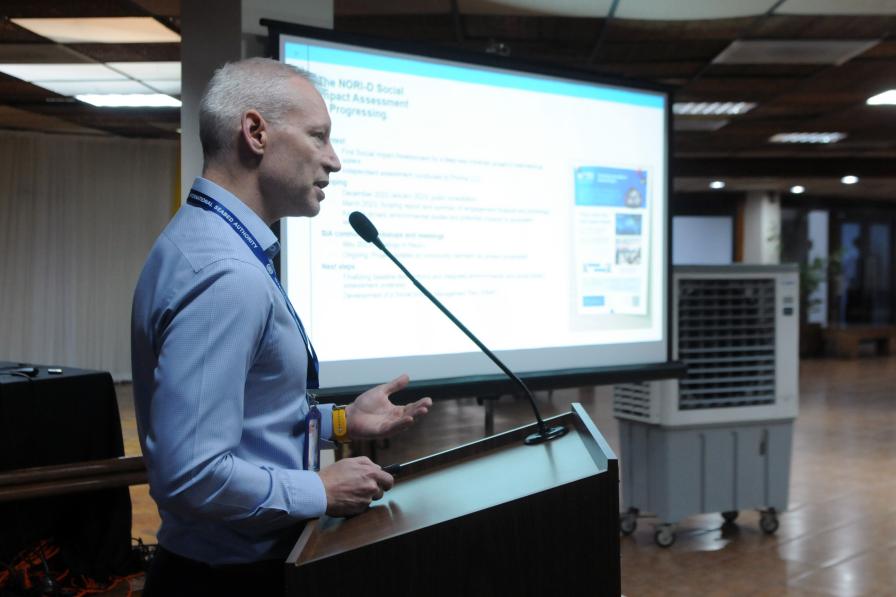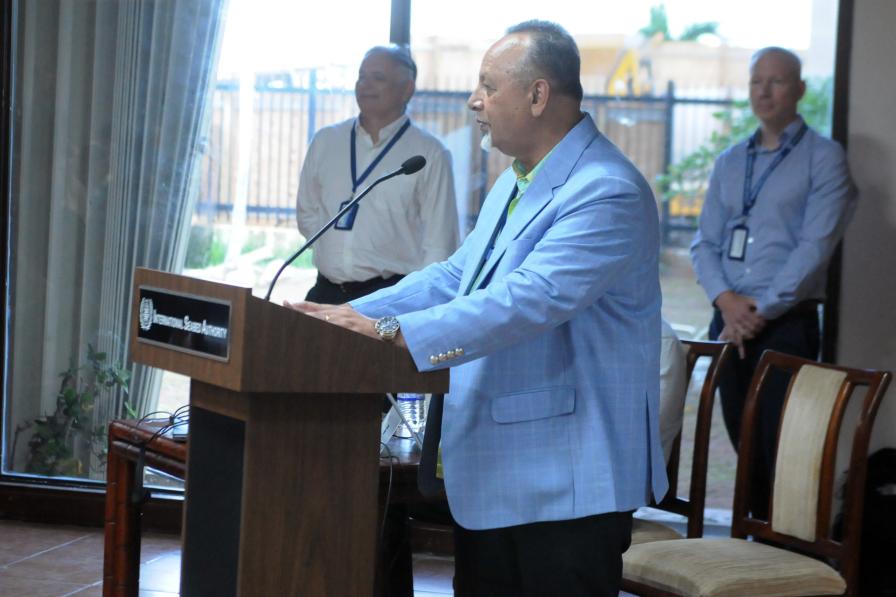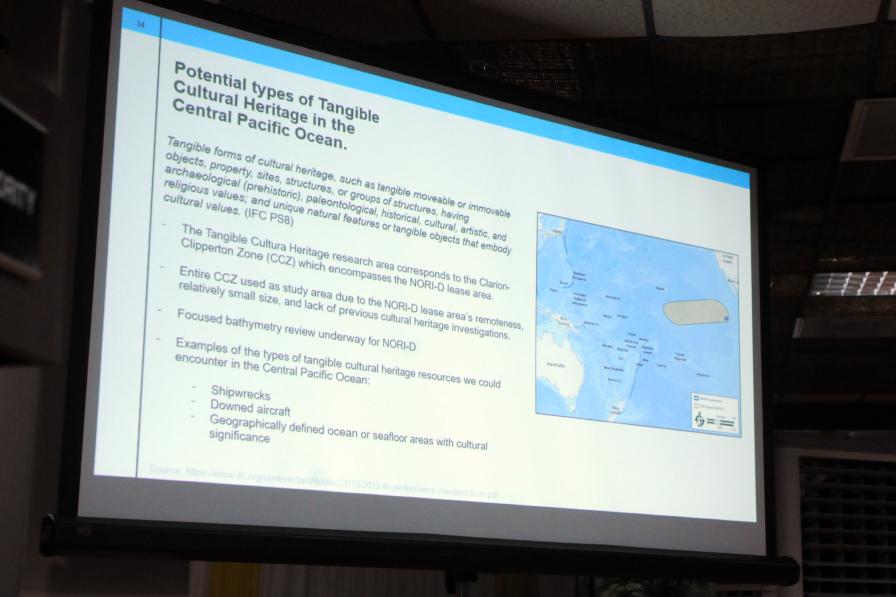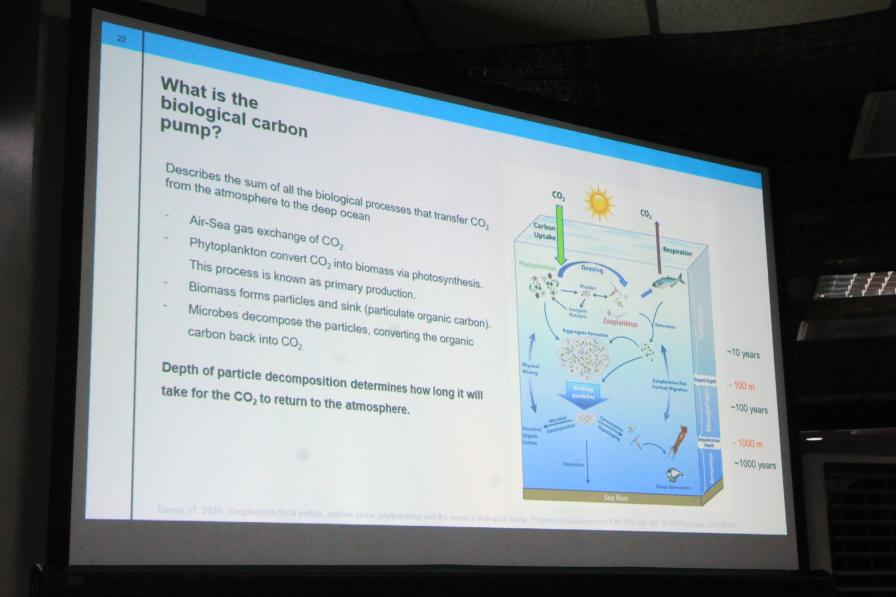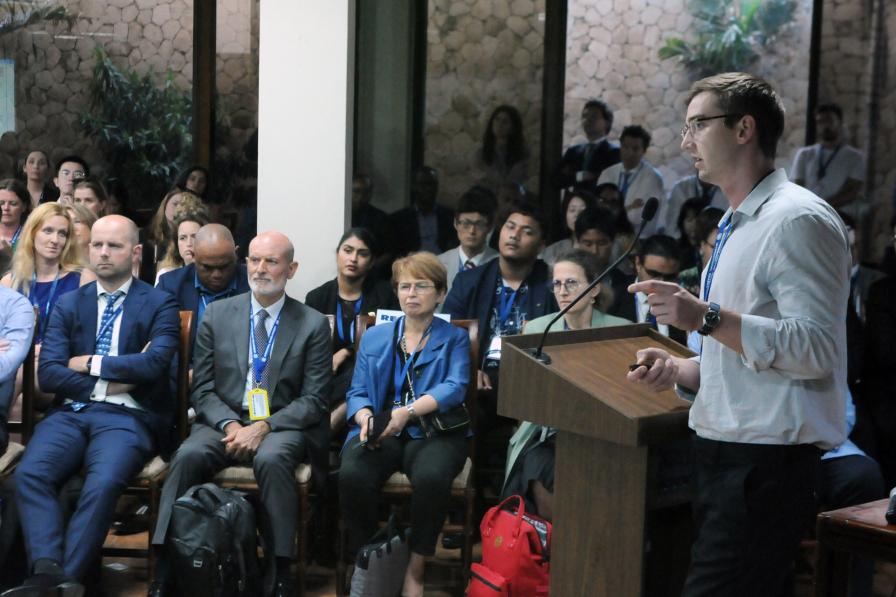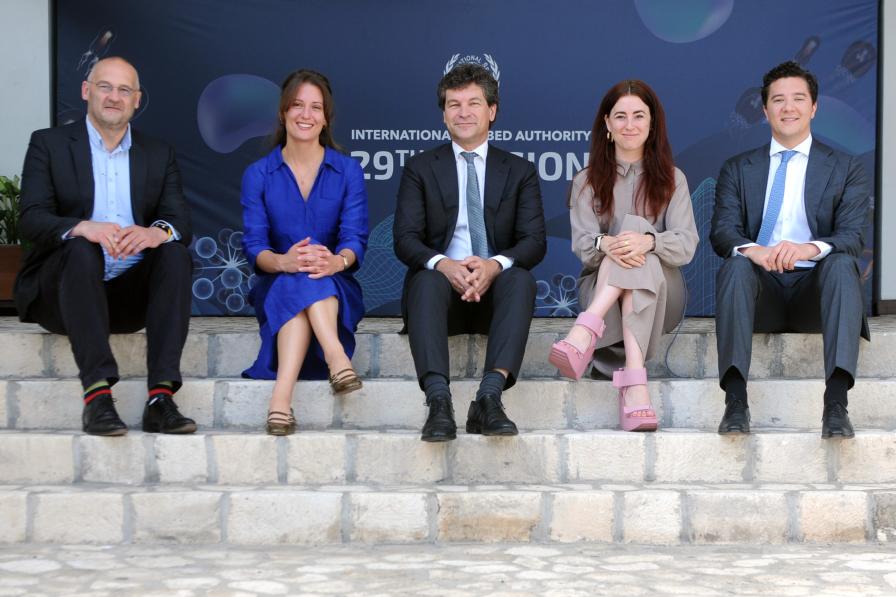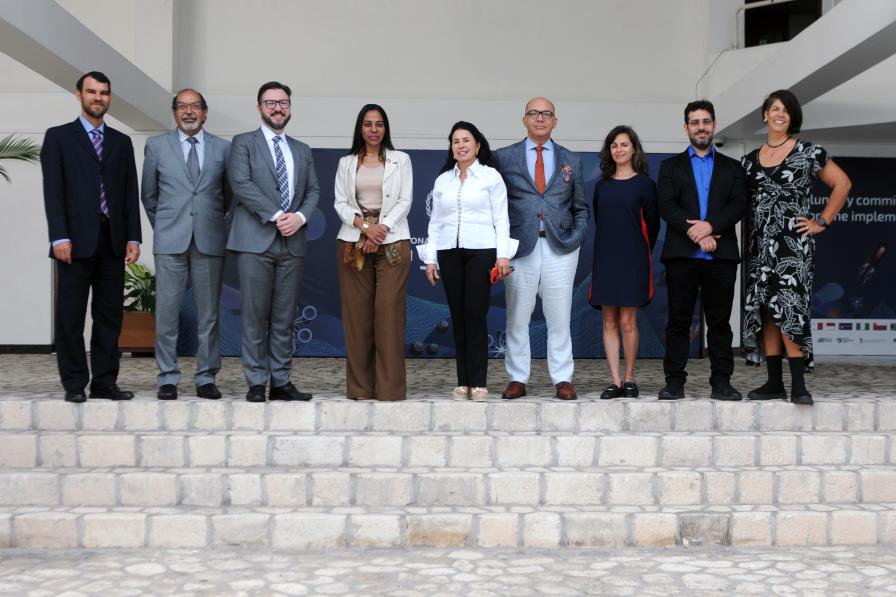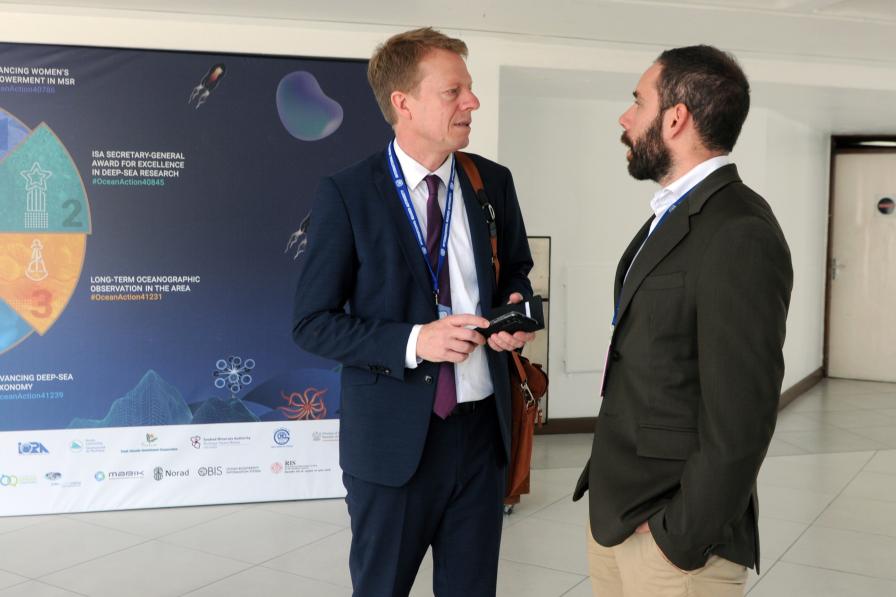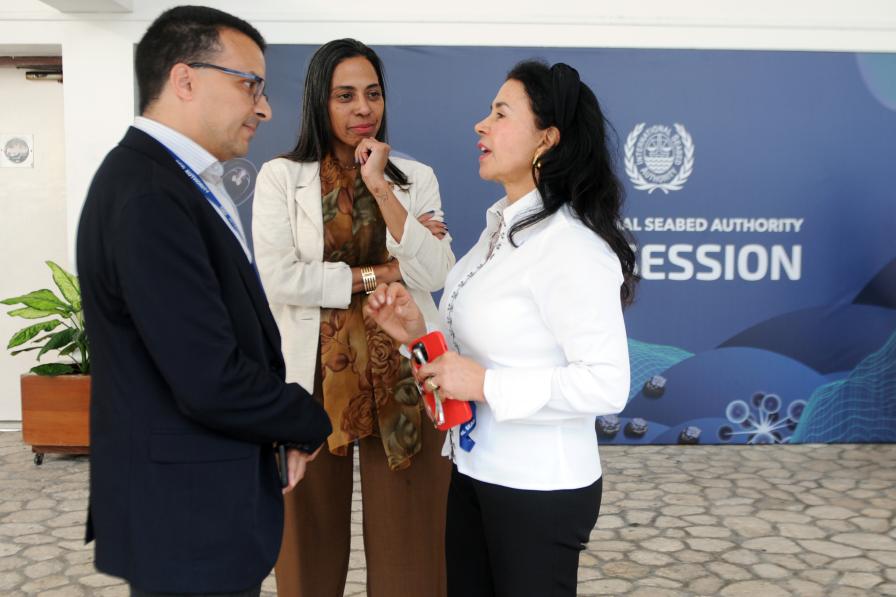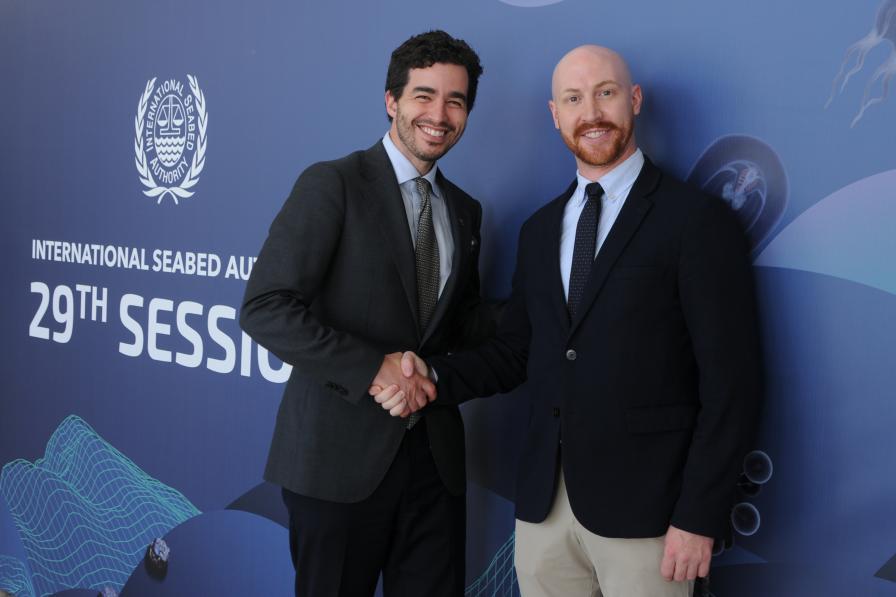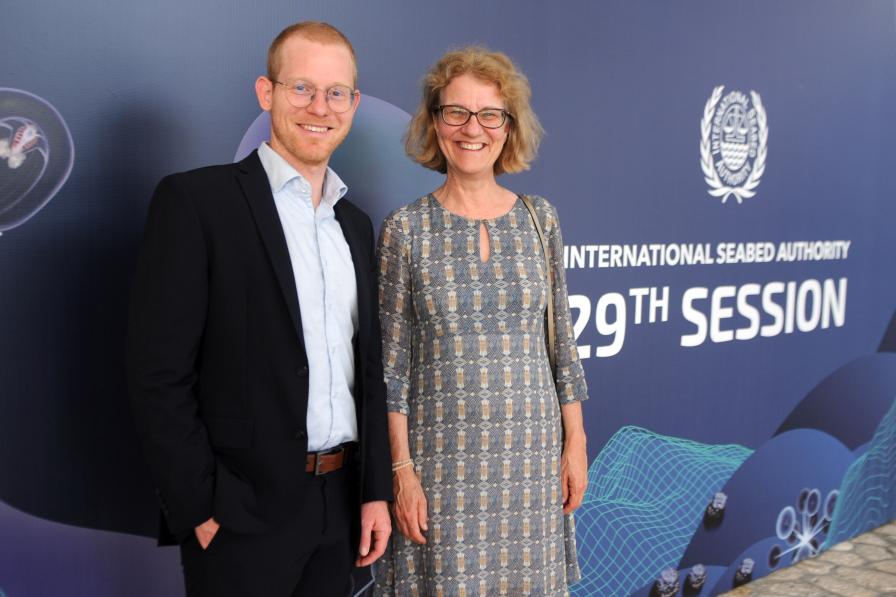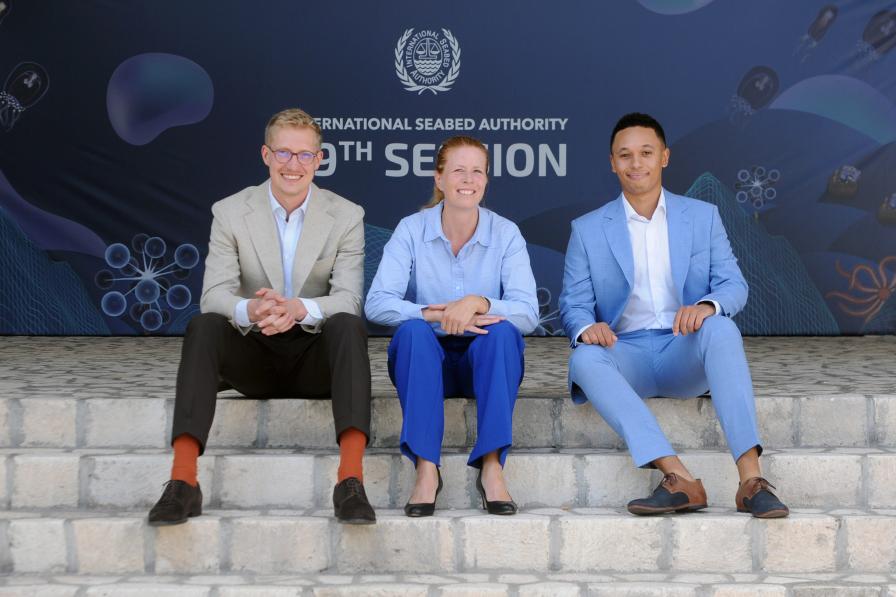Having completed the first reading of the draft exploitation regulations for deep-sea mining, the Council of the International Seabed Authority (ISA) turned its attention to other items on its agenda. Celebrating the African Day of Seas and Ocean, delegates addressed, among other things, the reports of:
- ISA Secretary-General Michael Lodge on the implementation of the decision of the Council in 2023 relating to the reports of the Chair of the Legal and Technical Commission (LTC);
- the Interim Director General of the Enterprise Eden Charles on activities related to the Enterprise, the commercial arm of the ISA; and
- the Chair of the Finance Committee Khurshed Alam (Bangladesh) on the work of the committee.
Secretary-General Lodge noted in his report that no instances of non-compliance have been identified and highlighted: communication with contractors; conclusion of the data management review and reporting template training sessions; and the urgent need for contributions to the voluntary trust fund to support the participation of LTC and Finance Committee members from developing country members.
Delegates expressed concerns over the depletion of funds in the voluntary trust fund and underscored: implementation of contractors’ training commitments; the development of the standardized procedure for regional environmental management plans (REMPs); and progress towards establishing environmental thresholds.
Some delegates stressed the need to name contractors whose reports were incomplete or insufficient, or who are in breach of their contractual obligations. They reiterated the request for the LTC to hold open sessions on non-confidential issues to allow for greater transparency. The Council took note of the report.
Interim Director-General of the Enterprise Charles outlined in his report activities and progress related to the Enterprise, including on assessing available data relating to reserved areas and approaches to joint venture operations.
Delegates welcomed the report highlighting progress and efforts towards the operationalization of the Enterprise. Observers stated that the profitability of deep-sea minerals will continue to be uncertain, pointing to reduced demand for cobalt and nickel. The Council took note of the report.
Finance Committee Chair Alam presented the much-anticipated report of the Finance Committee. He reported on the following topics:
- Implementation of the budget for 2023;
- Status of the Working Capital Fund and contributions;
- Indicative scale of assessed contributions for the financial period 2025-2026;
- Audit report on the ISA accounts for 2023;
- Status of the trust funds of the Authority and related matters;
- Development of rules, regulations and procedures on benefit-sharing;
- Proposed budget for 2025-2026; and
- Budgetary implementations of a second periodic review.
On the implementation of the budget, many delegates recognized the evolution of the ISA as it continues to develop exploitation regulations for activities in the Area. They stressed that budgetary increases are justified by the escalated responsibilities of the ISA Secretariat and inflationary pressures. Some expressed concerns over expenditures related to travel, consultants, and reclassification of posts within the Secretariat and highlighted overspending in the 2023-2024 budget.
Some delegates urged Council members not to enter into detailed discussions questioning the budget so as not to undermine the Finance Committee’s work. A couple of delegates requested more transparent reporting on expenditures related to the status of trust funds. Some highlighted the work of the Secretary-General to collect arrears from countries that owe outstanding fees to the ISA.
On the consideration of potential financial contributions by observers, some asked for clarification on the “substantial financial resources” the ISA has “absorbed” through the participation of observers. Some highlighted observers’ contributions and stressed that, in the interest of transparency, the ISA should support the unfettered participation of observers.
Observers urged the Council not to adopt the recommendation relating to observers paying financial contributions. They noted such a measure would impede their ability to meaningfully participate in the work of the ISA.
They emphasized the importance of their in-kind contributions, including among others: policy briefs; scientific knowledge sharing; participation in public consultations; capacity building; and facilitating the participation of a wide range of stakeholders. They noted that such a practice is contrary to UN practice and Rio Principle 10 (participation and access to information).
Delegates further listened to Secretary-General Lodge’s reports on the credentials, noting that 35 states submitted credentials and related information, and on the status of national legislation relating to deep-seabed mining and related matters.
In the evening, the Nauru Ocean Resources Inc. (NORI) organized a side event titled “NORI-D update.”
To receive free coverage of global environmental events delivered to your inbox, subscribe to the ENB Update newsletter.
All ENB photos are free to use with attribution. For the 2nd Part of the 29th Annual Session of the ISA, please use: Photo by IISD/ENB - Diego Noguera
